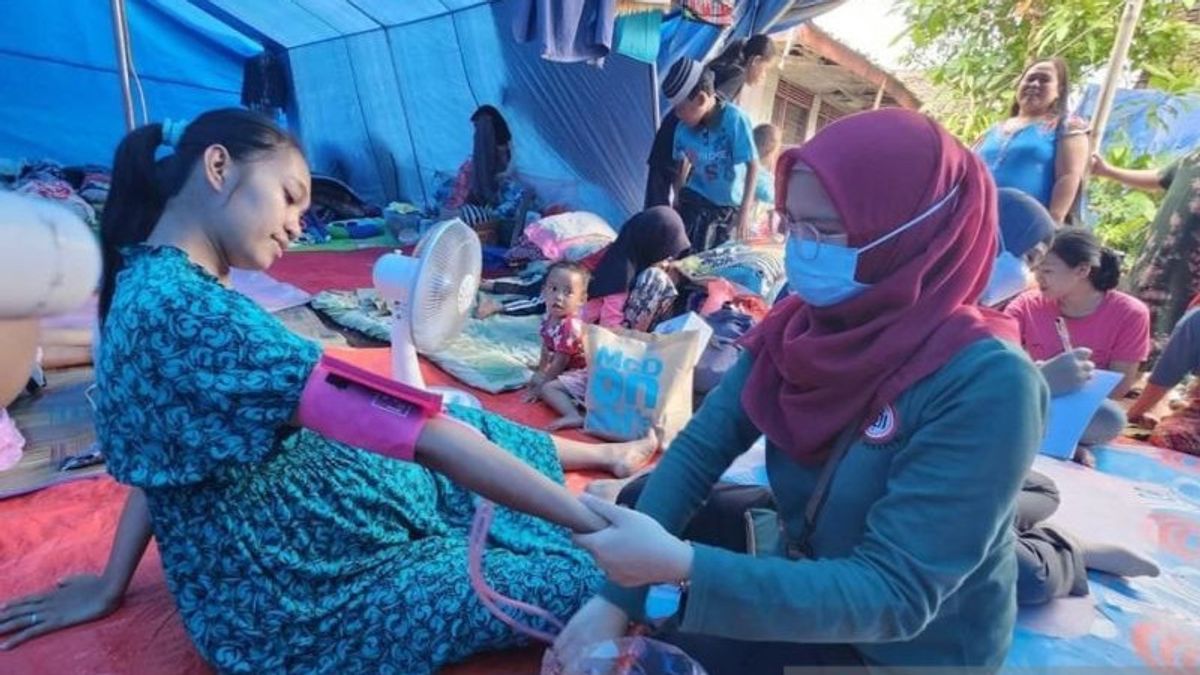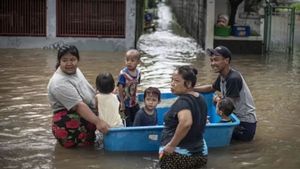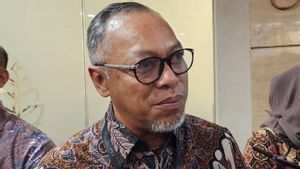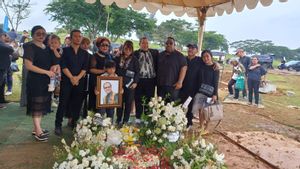The integrated health post for the earthquake emergency response in Cianjur Regency, West Java, stated that entering its 12th day after the disaster, refugees living in tents began to suffer from acute respiratory infections (ARI), diarrhea and hypertension.
Head of the Cianjur Health Service (Dinkes), Dr. Irvan Nur Fauzy, said health services moved to each refugee post spread over 200 points, carried out by a health team from the ministries and volunteers of the Indonesian Doctors Association (IDI) and the Indonesian Red Cross (PMI).
"Health services are given regularly every day by mobile to each refugee post, it is recorded that every day the number of refugees who complain of illness continues to grow from each post, not less than 85 people check themselves every day," he said in Cianjur, Antara, Friday, December 2.
He explained that inadequate evacuation conditions were one of the causes of disease disturbances for residents filling tents in centralized or independent evacuations. For the centralized one, it is certain that all health volunteers have entered because they are "check-in" and "check-out".
Diseases that are widely obtained during health services to each refugee camp include ARI, diarrhea, and hypertension as well as several people experiencing diarrhea.
"We will focus more on the illness suffered, especially diarrhea and ispa because it relates to environmental conditions in the evacuation," he said.
As for the refugees of the independent tents, he added, they are still being served by involving health workers in each of the nearest health centers. During the emergency response, all volunteers must enter the health post to report to find out the strength of the volunteers, including the infrastructure brought.
"For volunteers registered at the integrated health post in the Cianjur Regency Hall, there are 3,445 people, until the 12th day there are still around 2,333 people active," he said.
Meanwhile, the thousands of health volunteers consisted of 263 general practitioners, 680 nurses, 284 midwives, 66 specialist doctors, 22 therapists, including psychiatrists, said Irvan Nur Fauzy.
The English, Chinese, Japanese, Arabic, and French versions are automatically generated by the AI. So there may still be inaccuracies in translating, please always see Indonesian as our main language. (system supported by DigitalSiber.id)
Tags les plus populaires
#NCP #Shin Tae-yong #Hasto Kristiyanto #free nutritious food #patrick kluivertPopulaire
09 Januari 2025, 06:40
09 Januari 2025, 07:00













